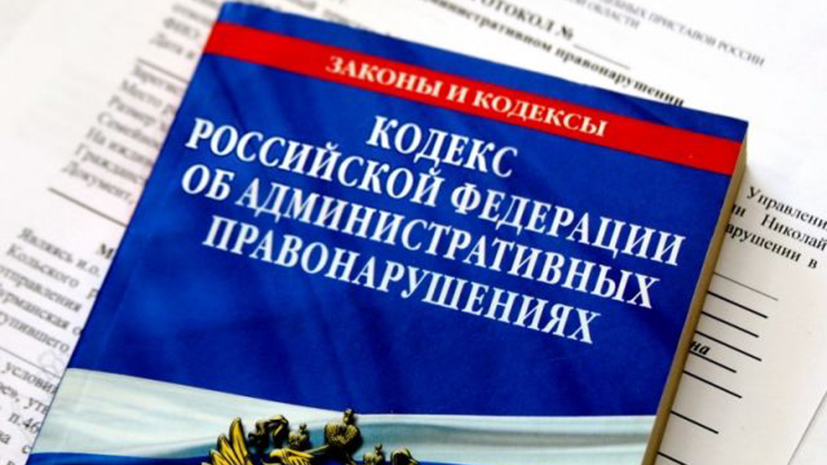The Ministry of Justice of Russia proposed to supplement the code of administrative offenses with new rules governing silence. The relevant proposals are published on the website of the department.
“Part 6 of Article 14.1 of the draft Code of Administrative Offenses, providing for administrative responsibility for committing acts that violate the peace and quiet of citizens from 23 hours to 7 hours, is supplemented by an indication of the possibility of committing the specified administrative offense also in the form of inaction,” the agency’s initiative summary says.
The Justice Ministry noted that the innovation will allow to prosecute not only residents who violate silence by active actions: listening to loud music, playing musical instruments, noisy repair work, but also those who do not take actions to eliminate noise.
The measure concerns, for example, citizens leaving a dog in the apartment that bothers their neighbors with a loud bark at night, or those who refuse to repair a regularly working faulty car alarm.
Recall, following a public discussion on the portal of draft normative legal acts of the draft federal law “Code of Administrative Offenses of the Russian Federation” developed by the Ministry of Justice, the agency received about 1,300 proposals on 467 issues, many of which were repeated.
The draft Code of Administrative Offenses and the Procedural Code is planned to be submitted to the government in May, and to the State Duma in June. According to preliminary data, they should come into force next year.
Deputy Minister of Justice Denis Novak explained that the silence regime in residential buildings will continue to be regulated by regional legislation, but sanctions will be determined by federal law.
“Of course, there should not be duplicate norms. But for the first time we are laying the possibility of introducing federal fines for violating the norms established by regional laws. Therefore, if at the regional (or municipal) level there is a ban on silence, it will be preserved, but federal sanctions will be applied, ”he said in an interview with Kommersant.
He added that, as an alternative to the fine, the possibility of punishment in the form of a warning is also provided.
At the same time, the chairman of the Federation Council committee on constitutional legislation, Andrei Klishas, said that the Federation Council would oppose the proposal to include fines for barking dogs or alarms in the Code of Administrative Offenses.
“Of course, the peace and quiet of citizens at night should be legally protected. At the same time, under this good intention we see attempts to introduce changes into administrative legislation that contradict not only the spirit of the law, but also common sense. If these proposals are sent to the Federation Council, we will oppose them, ”Klishas said.
- © Press Service of the Main Directorate of the Ministry of Internal Affairs of Russia
Also, the Ministry of Justice, following a public discussion, refused to increase fines for administrative offenses.
“Based on the results of the public discussion of the draft new Code of Administrative Offenses, it was decided to agree with the need to reduce to the current level the size of administrative fines for the composition of administrative offenses for which they were envisaged to increase," TASS quoted the agency as saying.
In February, the Federation Council discussed the proposal of the regions to add an article on violation of the peace and quiet of citizens in the daytime to the draft Code of Administrative Offenses. According to Izvestia, with reference to the amendment to the draft Code of Administrative Offenses, which the Federation Council intended to send to the Justice Ministry, the measure implied a ban on noise from 13 to 15 hours and from 19 to 9 hours, as well as on Sunday and non-working holidays.
In case of violation, individuals will face an administrative fine of 500 to 3 thousand rubles, and legal entities - from 20 thousand to 40 thousand rubles.
Elena Afanasyeva, a member of the Federation Council committee on constitutional law and state building, commenting on the initiative, explained that amending the draft Code of Administrative Offenses will help ensure the rights of families with children to have a quiet life in their home during the day.
“As you know, sharp sounds are dangerous for the psyche of children. If some people do not understand this and disrespect others, the state should intervene, including using the mechanisms of the administrative code, ”she said.
Earlier, the State Duma developed a package of amendments to the Civil Code governing the rights of summer neighbors. As explained by the head of the committee on state building and legislation, Pavel Krasheninnikov, the operation of neighborly rights is based on the “principle of reasonable patience”. According to the amendments, actions that may lead to a deterioration of the state of the neighbor’s territory are prohibited.
So, if smoke comes from a neighboring land plot, noise is heard, vibrations, smells emanate, but at the same time they do not exceed the established standards or do not affect the use of the land plot, then this is considered permissible.
The deputy explained that if the impact coming from a neighboring site goes beyond the specified limits, the neighbors have the right to demand the elimination of violations.

